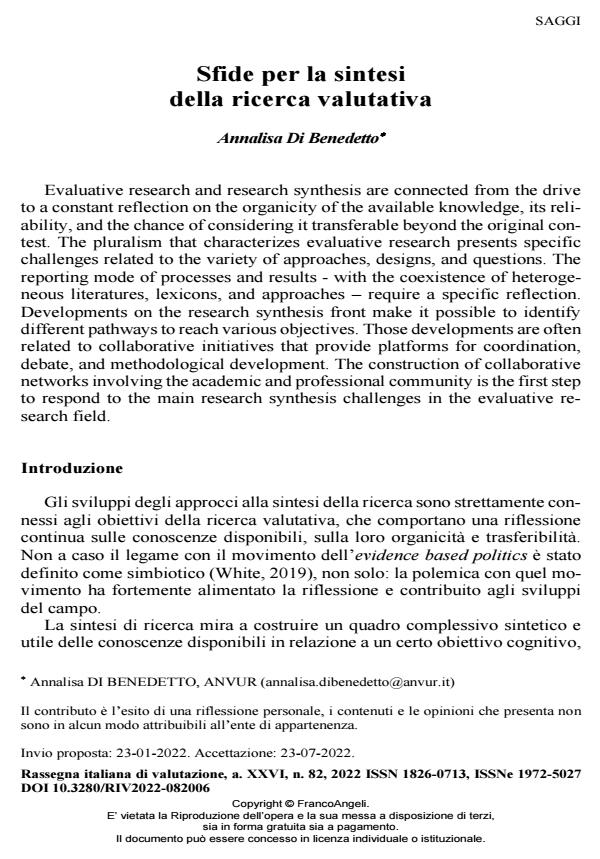Sfide per la sintesi della ricerca valutativa
Titolo Rivista RIV Rassegna Italiana di Valutazione
Autori/Curatori Annalisa Di Benedetto
Anno di pubblicazione 2023 Fascicolo 2022/82
Lingua Italiano Numero pagine 22 P. 93-114 Dimensione file 396 KB
DOI 10.3280/RIV2022-082006
Il DOI è il codice a barre della proprietà intellettuale: per saperne di più
clicca qui
Qui sotto puoi vedere in anteprima la prima pagina di questo articolo.
Se questo articolo ti interessa, lo puoi acquistare (e scaricare in formato pdf) seguendo le facili indicazioni per acquistare il download credit. Acquista Download Credits per scaricare questo Articolo in formato PDF

FrancoAngeli è membro della Publishers International Linking Association, Inc (PILA), associazione indipendente e non profit per facilitare (attraverso i servizi tecnologici implementati da CrossRef.org) l’accesso degli studiosi ai contenuti digitali nelle pubblicazioni professionali e scientifiche.
Evaluative research and research synthesis are connected from the drive to a constant reflection on the organicity of the available knowledge, its reliability, and the chance of considering it transferable beyond the original contest. The pluralism that characterizes evaluative research presents specific challenges related to the variety of ap-proaches, designs, and questions. The reporting mode of processes and results - with the coexistence of heterogeneous literatures, lexicons, and approaches - require a specific reflection. Developments on the research synthesis front make it possible to identify different pathways to reach various objectives. Those developments are often related to collaborative initiatives that provide platforms for coordination, de-bate, and methodological development. The construction of collabora-tive networks involving the academic and professional community is the first step to respond to the main research synthesis challenges in the evaluative research field.
Annalisa Di Benedetto, Sfide per la sintesi della ricerca valutativa in "RIV Rassegna Italiana di Valutazione" 82/2022, pp 93-114, DOI: 10.3280/RIV2022-082006